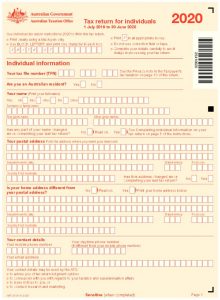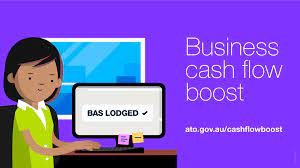Posts Categorized: News
Proper tax planning – includes fixing problems

As much as tax planning is about legally maximising your tax outcome it is also about fixing problems.
Some problems can be fixed by the time the Tax Return; but not all.
So what problems need to addressed now. Some of the main ones are:-
- The time to write off bad debts is know. Don’t think of doing it later as entries are date stamped within cloud programs.
- Trustees need to resolve (and evidence the decision) as to who the trust income will be distributed to. If not, the income is taxed at the highest marginal tax rate.
- Have you made a capital gain this year? If so, might be time to generate a capital loss to reduce or eliminate the tax on that gain.
- If your income is too high you will pay more tax. You might also lose things benefits such as the Family Tax Benefit or the Senior Health Concession Card. Might be time to prepay a few expenses or make donations or super contributions (but please do so only after receiving financial planning advice).
- The biggest one is what is best known as Division 7A. Division 7A is the section of the Tax Act that dictates how loans by companies to individuals and trusts are treated. Such loans must be repaid under a loan agreement with a set formula dictating repayments of both interest and principal. If the company doesn’t make the minimum repayment then the shortfall is taxed as income in the name of the individual or trust. So make sure you at least meet that minimum repayment.
- For new loans, maybe they can be paid out before the end of the financial year. Or even before the 2021 Tax Return is lodged. That way, there is no tax hit.
Proper tax planning is pivotal to maximising your situation. And with proper tax planning you will know what your tax liabilities will be and when they will fall due.
Do you receive this level of service form your accountant? If not you better call us.
Ways to manage a capital gain

Have you made a taxable capital gain this year? If so, time is running out to manage its tax impact.
Before starting our discussion there are three key things to keep in mind:-
-
Capital gains are recognised by contract date; not when you receive the proceeds.
-
Capital gains are halved if the asset was owned for more than 12 months; but companies pay tax on the full gain.
-
But capital losses are offset against the capital gain before applying that 50% discount.
So if you have already made a capital gain in this 2020/21 tax year, is there any other asset you can sell to generate a capital loss that can reduce that gain?
If you still have a net capital gain, other options for reducing the tax liability are:-
-
An investor may be able to prepay interest.
-
You could make concessional (deductible) contribution – but seek financial planning advice first as there are many other considerations to take into account.
-
Make a donation.
-
If a trust is the one which has made or will make a capital gain, see whether any possible beneficiary has any capital losses or are on lower marginal tax rate.
TIP
If you need to sell an asset can you delay executing the contract for two weeks? If so, anything sold in July will not require a tax payment until after the 2021/22 Tax Return is lodged.
As you can gather there is no cookie cutter approach. We welcome your call to discuss your situation and options.
Should you prepay expenses before July?

Prepaying expenses is a common tax strategy.
If you are a small business, then paying an expense in June that is payable in July or perhaps even August makes sense. Paying early will reduce the tax you pay on the 2020/21 year. It will also reduce the PAYG Instalments you pay next year.
It makes even more sense for small companies with the current company rate of 26% falling to 25% come July.
TIP
But just don’t go out any buy anything. A company will save $250 if it spends $1,000 now – but it is $750 out of pocket. If your marginal tax rate is 39% then your tax saving may be $390 but you are still $610 out of pocket. Point is just buy the stuff you need.
But prepaying expenses will not be in all business owner’s best interests including:-
-
Businesses with current year losses – they won’t be paying tax anyway (but read our post on companies who can now carry back losses).
-
Businesses with profits less than the Cash Flow Boost component (as the CFB is non-taxable).
-
Those non-corporate business owners who expect to be in a higher marginal tax rate next year.
So want is best for you? Well that depends on your overall position – and expected position next year. Ad what si the best way to work that out – give us a call.
Best to pay your employee super now?

Most businesses pay tax on an accruals basis. That means that income is recognised when an invoice is raised; likewise expenses when the bill is received. Those assessed on a cash basis pay tax based on when income is received and expenses paid.
Accrual taxpayers can deduct bills received by 30th June and other liabilities incurred.
However this doesn’t apply to employee super.
An employer can only deduct the super it has actually paid during the year.
TIP
Whilst employers have to 28th July to pay the June quarter super, it may be best to pay it now. Paying it now will allow a tax deduction to be claimed within the 2021 Tax Return. You will pay less tax. You will also pay less PAYG Instalments next year.
It’s common sense – might as well pay it now for what is due before the end of next month anyway.
But if covid business life is tough and you are in a loss situation, there is no point in accelerating the cash flow. Mind you, if cash is not the problem, corporate taxpayers may still wish to do so as they can claim back more 2019 and/or 2020 tax under the new loss carry back rules.
As with all years, proper tax planning takes all these considerations and matters into account to deliver you the best result.
We have a great process and one that delivers a plain English report. That report sets out what you need to do and what the tax and cash flow benefits will be. Call us now – it’s best not left to the final days of June.
Are there new beneficiaries to distribute to?
In our last tax tip, we outlined distributing to bucket companies.
But may you not need to.
Perhaps there are people within your family group that your family trust can distribute to for the first time. And the most obvious case is a child within the ancestral line who has turned 18 during the year.
If so, the trustee of your family trust could distribute up to the tax free threshold (adjusted for the Low Income and Low Middle Income Tax Offsets).
But beware as:-
-
The trust’s definition must not be narrow enough to exclude the newly turned 18 year old.
-
If the family trust has previously made a Family Trust Election (now there is a major topic in itself) that election may not include the newly turned 18 year old within the permitted family group.
-
It may be that the income distributed may upset some social security claim.
And don’t forget, any new adult beneficiary must be reported to the ATO before the end of July.
As is always the case with proper tax planning, there is much to consider.
Should you use a bucket company?

Should you use a bucket company is a common question at this time of year.
Trusts are great for asset protection and flexibility. However, all income must be distributed (be taxed in someone else’s name). And if the profits are large, then family members might be paying a lot of tax at 39% and 47%.
If the profits aren’t needed, then bucket companies can be attractive. Whatever business income is distributed to the bucket company only gets taxed at 26% (25% next year). That in itself can be a compelling reason. So for this tax year, distributing $200,000 to a bucket company could save you up to $42,000.
The modern problem is what is the company going to do with the money as :-
-
If it is invested in cash it won’t make 1%.
-
If the company invests in appreciating assets then there is no CGT discount.
-
If you take the money then you will pay tax at your marginal tax rate less the prevailing company tax rate. That said, this isn’t such a problem if you are approaching retirement.
So bucket companies, whilst suitable for some, aren’t suitable for all.
And it must also be noted that you can’t assume you can add a bucket company to your group. You need to check whether the trust deed permits it.
Not that it is necessarily the case, but the above concerns in your case might mean it is better to consider a re-structure. We welcome the opportunity to discuss your situation with you.
How not pay tax on the Cash Flow Boost

Whilst JobKeeper got all the press, the Cash Flow Boost played a huge part in enabling employers to retain their workforce.
The Cash Flow Boost was poorly named. No cash was given to employers. Rather employers received a credit on the March to September 2020 activity statements. The credit was a least $20,000. Employers with larger payrolls received up to $100,000 credit off their PAYG Withholding liability.
But it was worth more than that.
It is what is called non-assessable non-exempt income. In other words, no income tax was payable on the receipt of the credit on the activity statements lodged in the 2019/20 year. Same for the Cash Flow Boost applied to the activity statements lodged in this financial year.
But that is not the end of the story. And the next part is not as palatable for some. There are three main scenarios:-
-
Sole trader employers retain the money tax free.
-
Companies will have the untaxed Cash Flow Boot form part of their retained earnings. That means when later paid out as a dividend, there will be no proportional tax credit to attach that dividend. Effectively, it results in what is called an unfranked dividend. It means an individual shareholder will pay tax on the full amount of the Cash Flow Boost that they proportionally receive.
- And the typical family trust -well it depends. If the trust deed allows for different forms of income to be identified and streamed to individuals, then it comes out tax free. If not is taxable.
In respect of trusts this should not be news. Last year, we had a tax lawyer review our client’s trust deeds to ensure the Cash Flow Boost was treated as it was intended; as tax free income.
Was this handled properly for you last year? Are you at risk of paying tax on the Cash Flow Boost your trust received this financial year? Time to make sure – call us.
Be careful when claiming bad debts

A bad debt can be claimed as a tax deduction. And with the end of financial year rapidly approaching, now is the time to determine what can be written off.
Probably the more important discussion is how to avoid bad debts in the first place. That will be left to a future post.
To claim a bad debt, it must have already been reported as income. That means those who report their income for tax purposes on a cash basis can’t claim a bad debt.
So for those who recognise income on an accruals basis – meaning income is recognised when the invoice is raised – they must have reached a position where all reasonable attempts to collect have failed. It must therefore be more than doubtful.
You then need to make an entry into your accounting system. Those who are using a cloud file must process the bad debt in June. Don’t fall for the trap of ding it later as cloud systems time date entries.
But what if I collect the money later?
There are genuine cases where this happens. The customer could come into money through an inheritance or windfall and do the right thing and pay back their creditors. In that case, you re-recognise the income as a bad debt recovered.
Beware of schemes of arrangement
Sometimes a business may not write off a debt but later accept so many cents in the dollar from a liquidator’s offer. The problem here that accepting say 40 cents in the dollar does not entitle you to claim the other 60% as a bad debt. So keep on top of your customers and ensure you write off bad debts as soon as you can.
Tip
It is always a good idea to document the attempts you have made. That way you will have some contemporaneous evidence as to your decision if the ATO start asking questions.
As I already said, the real question is what can you do to prevent bad debts in the first place – we welcome that discussion with you.
Instant asset write-off warning

The Instant Asset Write-Off is a great way to reduce both your 2021 tax liability and your 2021/22 PAYG Instalments. And you won’t drain you cash flow if you finance the asset purchased.
But beware!
To be able to claim the write off in the 2021 tax year, you must have the asset installed and/or ready for sue before July.
If the car you ordered is not delivered until July then you won’t be able to claim until next tax year.
And as a footnote to the above, financing a lease will not able you to claim the write-off. Under a lease, you are not the owner until you pay the final instalment. This is just another trap.
If you want to know more then call us.
Is the super co-contribution good for me?
Under the super co-contribution scheme, the government will contribute $1 for every $2 of personal contributions made by an employed or self employed person. The maximum government co-contribution is $500 (meaning that one would need to contribute $1,000 to receive the maximum entitlement of $500).
To be qualify, one must:-
-
Be employed with their employer paying the compulsory SGC or be a self employed person running a business.
-
Have 10% or more of one’s income received from employment and/or a business.
-
Have combined assessable income (that being income before deductions), Reportable Fringe Benefits (RFBA) and employer super contributions in excess of basic SGC amount (RESC) of less than $54,837.
-
Have paid a non-deductible contribution into superannuation from after tax money by 30thJune 2021 – that is, you make the contribution out of a personal bank account.
-
Be less than 71 at the end of the financial year.
-
Not be a temporary visa holder.
-
Lodge a Tax Return for the year ending 30thJune 2021.
-
The maximum co-contribution for a personal contribution of $1,000 is $500 if your combined assessable income is under $39,87. Thereafter it progressively reduces by 3.333 cents for every dollar in excess of $39,837 – there is no entitlement if your combined assessable income exceeds $54,837.
-
Not have contributed more than your non-concessional cap.
-
Have a total super balance of less than $1,6200,000.
If you want to find out what you might be entitled to, click on the following link to the ATO’s calculator here
Other matters to note are:-
-
One’s own contribution and that made by the government will be preserved (that is, one will not be able to access it until one retires or satisfies another condition of release).
-
The ATO will deposit the co-contribution into one’s super account once they have reconciled one’s lodged 2021 Tax Return with the information provided by one’s super fund(s). It is therefore likely that the vast majority of contributions will not be credited until at least January 2022.
-
If you wish to make the contribution into a public or employer superannuation fund, you will need to ensure they accept such contributions and obtain the appropriate form and do so well before 30th For those with your own self managed super fund, your fund can only accept such a contribution if permitted by its trust deed (we will take no responsibility where a client does not consult with us beforehand).
What is best for you depends on your circumstances and take into account a large number of considerations.
You should therefore seek financial planning advice to ensure such a contribution will work as intended and is in your best overall interests.
